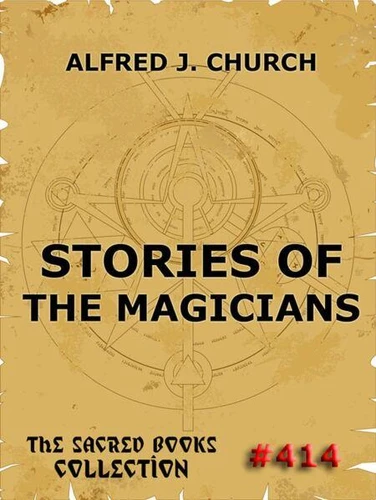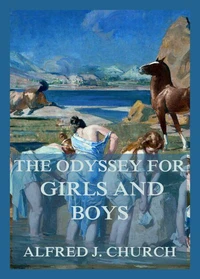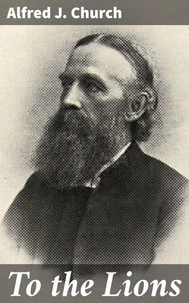Stories Of The Magicians
Par :Formats :
Disponible dans votre compte client Decitre ou Furet du Nord dès validation de votre commande. Le format ePub est :
- Compatible avec une lecture sur My Vivlio (smartphone, tablette, ordinateur)
- Compatible avec une lecture sur liseuses Vivlio
- Pour les liseuses autres que Vivlio, vous devez utiliser le logiciel Adobe Digital Edition. Non compatible avec la lecture sur les liseuses Kindle, Remarkable et Sony
 , qui est-ce ?
, qui est-ce ?Notre partenaire de plateforme de lecture numérique où vous retrouverez l'ensemble de vos ebooks gratuitement
Pour en savoir plus sur nos ebooks, consultez notre aide en ligne ici
- Nombre de pages199
- FormatePub
- ISBN978-3-8496-2371-5
- EAN9783849623715
- Date de parution21/07/2012
- Protection num.Digital Watermarking
- Taille911 Ko
- Infos supplémentairesepub
- ÉditeurJAZZYBEE VERLAG
Résumé
Southey's Oriental Romances, Thalaba the Destroyer and The Curse of Kehama, are, I suppose, almost wholly unknown to the younger generation of readers. It must be confessed that they are not commended by their metrical form; but they display great power of imagination, and convey an admirable moral. I have tried to tell these two stories in prose.
I have added the Story of Rustem, greatly condensed, from Firdausi's Shah-Nameh, or Book of the Kings.
I have availed myself of M. Jules Mohl's translation from the Persian, a popular edition of which, in seven octavo volumes, was published under the care of Madame Mohl in the years 1876-78. It was necessary to take some liberties with the story, for the chief of which I may plead the authority of Mr. Matthew Arnold, who, in his beautiful poem of "Sohrab and Rustem, " represents the father as believing that the child born to him by his Tartar wife is a girl.
In Firdausi's poem he knows that he has a son, but cannot believe that so young a child can be his stalwart antagonist.
I have availed myself of M. Jules Mohl's translation from the Persian, a popular edition of which, in seven octavo volumes, was published under the care of Madame Mohl in the years 1876-78. It was necessary to take some liberties with the story, for the chief of which I may plead the authority of Mr. Matthew Arnold, who, in his beautiful poem of "Sohrab and Rustem, " represents the father as believing that the child born to him by his Tartar wife is a girl.
In Firdausi's poem he knows that he has a son, but cannot believe that so young a child can be his stalwart antagonist.
Southey's Oriental Romances, Thalaba the Destroyer and The Curse of Kehama, are, I suppose, almost wholly unknown to the younger generation of readers. It must be confessed that they are not commended by their metrical form; but they display great power of imagination, and convey an admirable moral. I have tried to tell these two stories in prose.
I have added the Story of Rustem, greatly condensed, from Firdausi's Shah-Nameh, or Book of the Kings.
I have availed myself of M. Jules Mohl's translation from the Persian, a popular edition of which, in seven octavo volumes, was published under the care of Madame Mohl in the years 1876-78. It was necessary to take some liberties with the story, for the chief of which I may plead the authority of Mr. Matthew Arnold, who, in his beautiful poem of "Sohrab and Rustem, " represents the father as believing that the child born to him by his Tartar wife is a girl.
In Firdausi's poem he knows that he has a son, but cannot believe that so young a child can be his stalwart antagonist.
I have availed myself of M. Jules Mohl's translation from the Persian, a popular edition of which, in seven octavo volumes, was published under the care of Madame Mohl in the years 1876-78. It was necessary to take some liberties with the story, for the chief of which I may plead the authority of Mr. Matthew Arnold, who, in his beautiful poem of "Sohrab and Rustem, " represents the father as believing that the child born to him by his Tartar wife is a girl.
In Firdausi's poem he knows that he has a son, but cannot believe that so young a child can be his stalwart antagonist.








